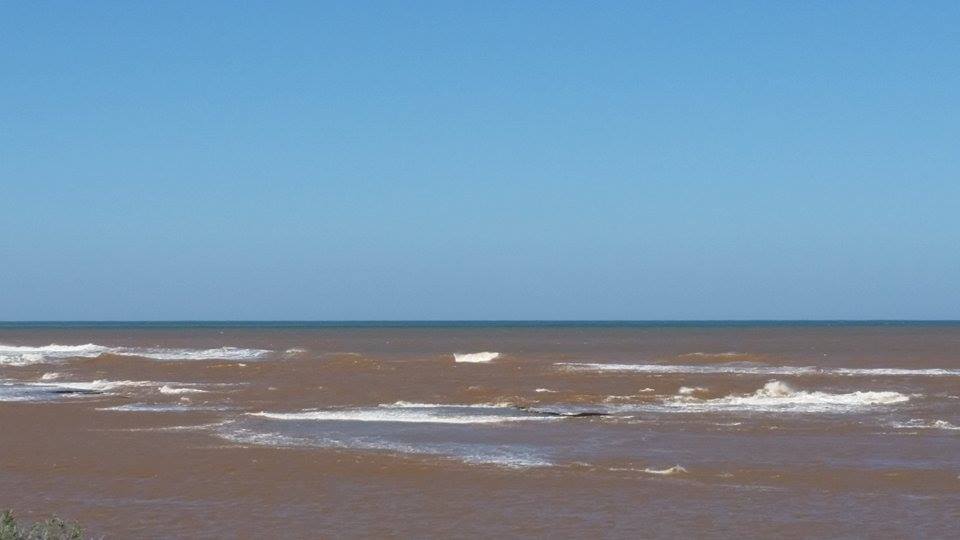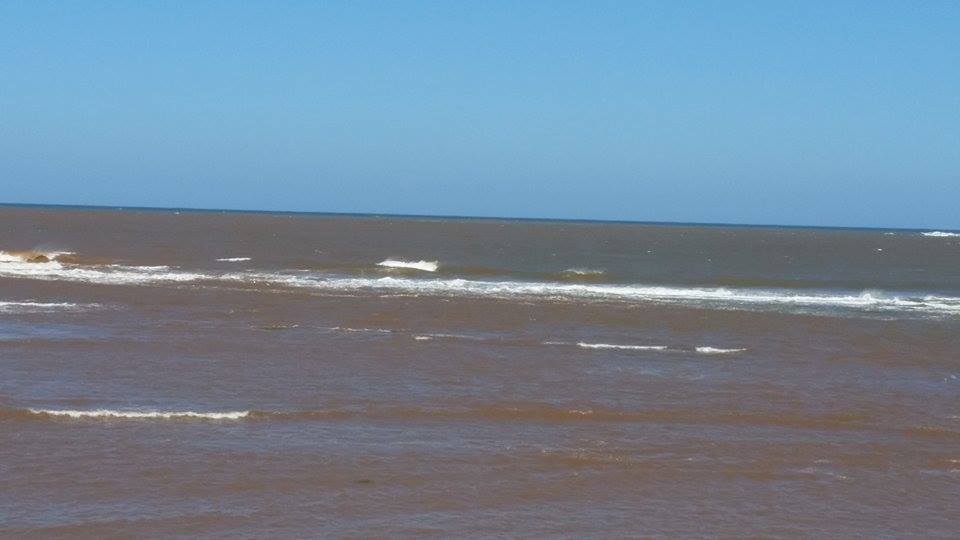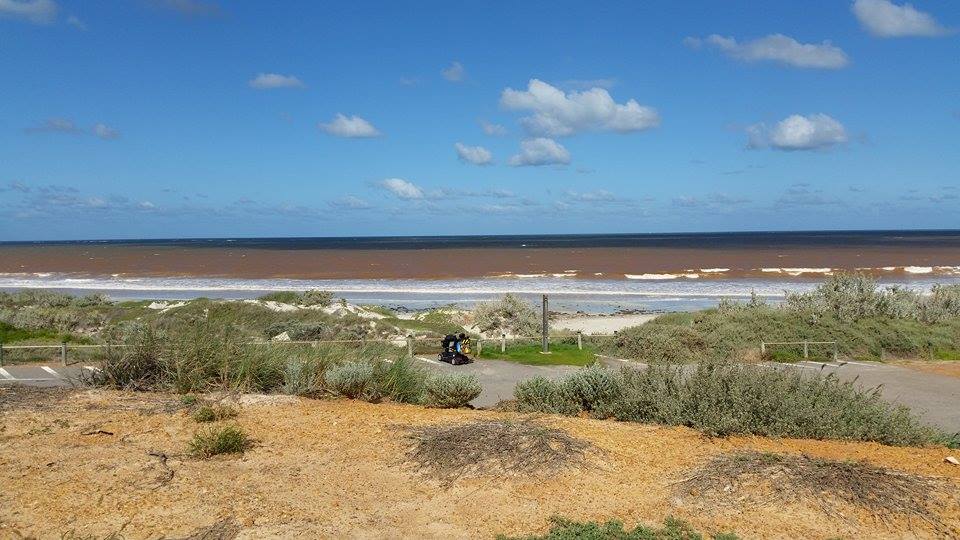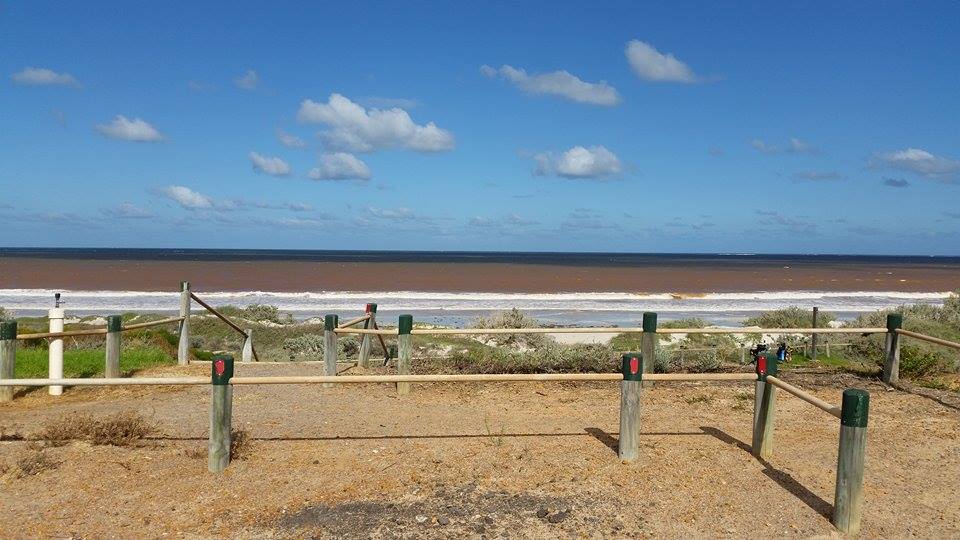River breaking through to ocean is not all good news
/Greenough River broken through to oceanGreenough River has broken through to the ocean at Cape Burney. Take care near the soft edges if you're taking little ones down to have a look.
Posted by Everything Geraldton on Tuesday, March 3, 2015
Twice in recent months heavy rains in the region have resulted in the Greenough River breaking through the sand bar to the ocean at Cape Burney and turning our beaches into a curious brown colour.
The event can be seen as a win for those who enjoy fishing along our shores, as any fish that are washed out to sea attract species like mulloway, and lobsters extend their wanderings making them easier to catch.
But it's not all good news for the Greenough estuary system, especially when climate change modelling is taken into account.
While climate change has seen less rainfall occur over the winter months in the region, it also increases the likelihood of heavy summer rain associated with tropical lows.
This, combined with the large amounts of cleared agricultural land, has resulted in problems starting to occur as valuable topsoil is washed into the water system causing the estuary to become much shallower in a process called sedimentation. "This is a big problem in the upper reaches of the Murchison estuary where navigation has become increasingly difficult due to shallow water," according to Dr Michael Payne, NACC Coastal and Marine Coordinator.
Dr Payne says healthy riverside vegetation is needed to slow water flows and filter sediments from water running off the land into rivers.
"In the past, normally closed estuaries have often been opened artificially using earthmoving equipment and sometimes even shovels. This was believed to provide a benefit to the health of the estuary. However, this practise is now discouraged as the amount of flushing that occurs with artificial openings is insufficient to improve water quality compared to natural openings. Also, if the water level in the estuary remains too low for too long, important wetlands along the edge of the estuary can dry up and die."
Dr Payne said "These flushing events have been going on for millennia and the plants and animals are all well and truly used to coping with them." But because the rains are more torrential or "full on" when they do occur, and because they are happening in dryer months when there is less vegetation on the ground, top soil run off is much more of a problem.
Certainly seeing the water run is a beautiful scene to behold, but it's worth taking note of the flow on effects climate change is having in our region.




Images sent in my Everything Geraldton readers over the last couple of weeks showing our discoloured beaches.





